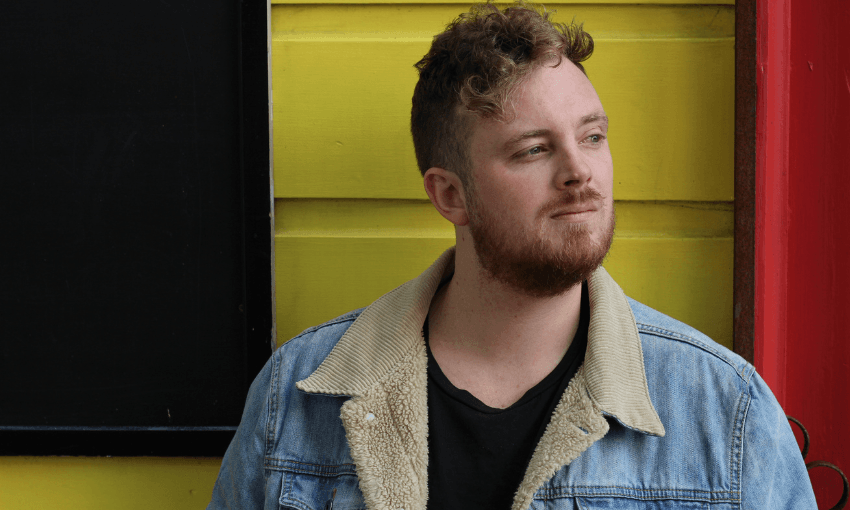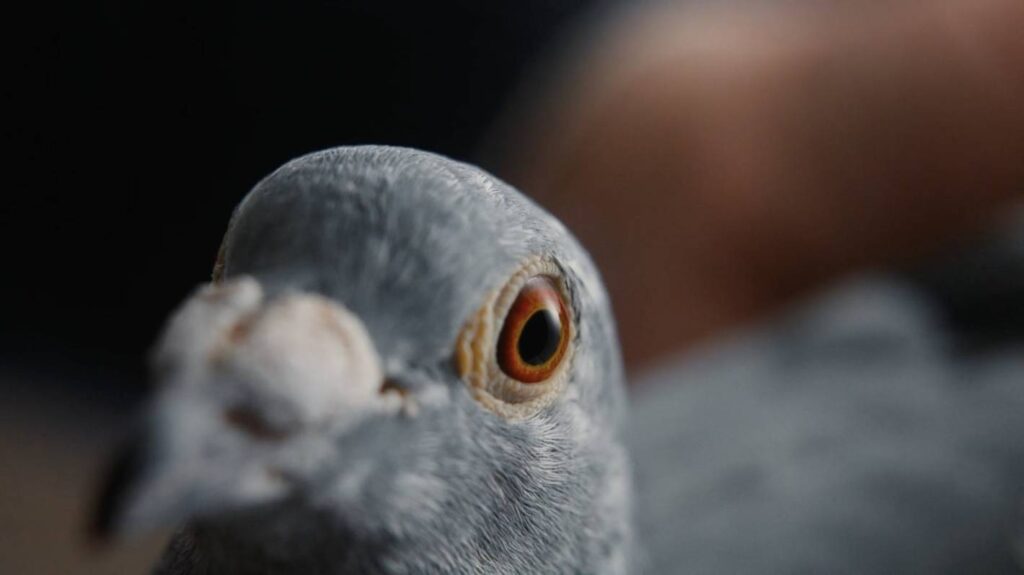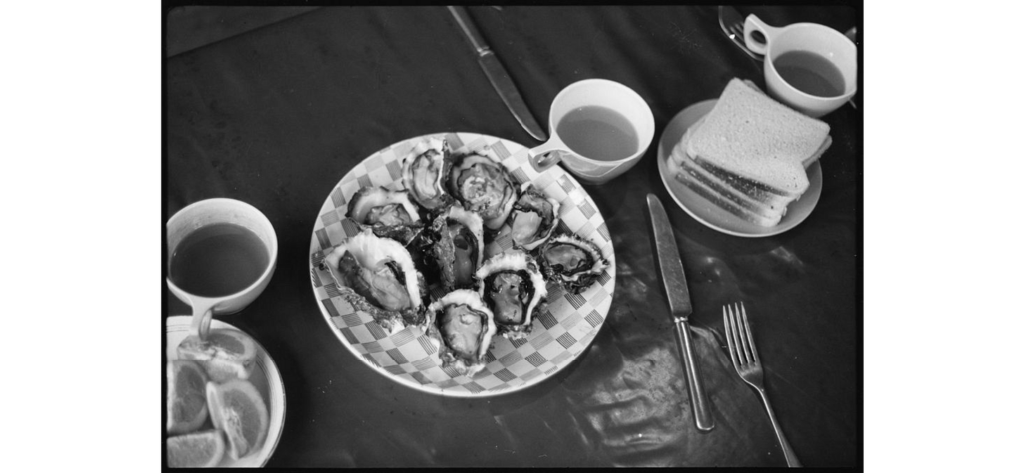Dispatching from Ann Arbor, where Jordan Hamel is a Creative Writing MFA student at the University of Michigan’s renowned writers conference.
My name is Jordan Hamel and I am one of God’s troubled creatures, a mature student. I used to be a civil servant in Wellington writing policy by day and poetry by night, now I find myself thrown off my schedule and settled back into Uni life in the middle of the world.
Ann Arbor, Michigan is an American Midwestern college town – think Dunedin but with affluent young people driving around to different parties. It is most famous for its football team (the mighty Michigan Wolverines), its football stadium (called “The Big House”, its capacity of 108,000 makes it the third largest stadium in the world, although Ann Arbor has only 120,000 people) and, surprisingly, his MFA Writing.
For the uninitiated, an MFA is a Masters program designed to give you the time and space to write and work on a project that will eventually become a manuscript and then a book. To my knowledge, Aotearoa has two Creative Writing Masters programs (which always seem to be in healthy competition if not all wars): Bill Manhire’s IIML Masters of Arts and Paula Morris’ Masters of Creative Writing at Auckland University. Neither program offers much funding, which means the class is made up of early 20-somethings who are willing to continue paying off interest-free student loans, and tired retirees who want to write their memoirs.
America has several MFAs but only a few are funded. In the case of the University of Michigan, sponsored by a mysterious Burns-esque character and the program’s namesake. The Helen Zell Writers’ Program is said to have been established to compete with the neighboring Iowa Writers’ Workshop, which was sponsored by the CIA during the Cold War (true story). HZWP has been home to literary giants like Jesmyn Ward, Celeste Ng, Franny Choi and now me, for some reason.
It still amazes me that it was cheaper to pack up and move to central Michigan and study art than it was back home. Masters is not the only way to improve your writing, far from it, but I wonder how many writers in New Zealand quit because they don’t see a way to further their education. Sorry, the summary of this article was to describe a day in the life of an MFA student and this is becoming a diatribe about settling in the arts, let me back up.
I lived in Ann Arbor eight months ago. When I first moved here, I had no friends, literally no friends. I don’t know if you moved somewhere you don’t know, but it’s bad. I walked alone all day, ate alone, slept alone, went to the movies and watched Minions: The Rise of Groot alone. I downloaded an app that marketed itself as “Tinder for friendship” and deleted it because everyone wanted to play with me. I’ve always thought of myself as a “good enough to be alone” person, and I thought I was, but I’m really bad at it. I feel very alone for many years. This feeling is permanent. More precisely, it lasts about two weeks, when my new life begins.
Fall descends on Michigan, the academic year begins and I finally meet my MFA group; a diverse group of people from different walks of life: veteran dancers, artists, journalists, community college veterans, babies who… they’re all here, writing their little stories and poems. Our first night we hang out together in a club in Ann Arbor drinking tequila in memory of our helper and founder Helen Zell (we later found out she’s still alive).
Unlike the New Zealand MAs, the current age is very young and I find myself one of the oldest in the program. Luckily I can hide this behind a love of drunkenness and a strange accent. People seem surprised that I have already published one book that has lost an award, even though it was published in a country that no one can point to on a map. We both fell in love with each other instantly, the prospect of creating a new collection of writing after losing my old one suddenly felt possible.
Like any student anywhere, a day in the life of an MFA student will be very familiar to some and very high to others. I didn’t study art writing at university, I came to this place as a stranger from a neglected land. This is my first time in an academic environment. For those who are new to this, this workshop is the exciting heart of writing lessons. Although students have the opportunity to meet writers, assistants and editors, the meeting is where the magic happens, the opportunity to share your work in a powerful way and influence the work of others.
After two semesters I learn that the conference can be a powerful place, often beneficial but sometimes destructive, and the energy is wasted instead of controlled, the drama seems to be strong. Top MFAs like Michigan, Iowa and NYU have fiercely competitive campuses and there’s no shortage of up-and-coming authors here who would rip my spine off my Mortal Kombat skin to sell two books, at least. This part of the show has been more like The Breakfast Club than The Hunger Games. Even in the end, I think it is impossible to escape the crab in the jar of feeling like a writer, writing and fighting for the rest, even within the comfort of education.
Speaking of garbage, it’s comforting, strangely enough, to realize that even in the biggest literary market in the West, poetry is a big deal. The sad reality of this high ceiling makes poets see publications and books and awards as tools to find the next “thing” – a fellowship, a place to live, an assistant professor, something, anything to turn the wheel and dream of life. of creating freedom of life.
Living full time in this country for almost a year has started to rewire my brain accordingly. Between the two-year degree is the inevitability of relapse reality it’s starting to weigh on me. I’m not really interested in going back to a nine-to-five job, lunch on the Beehive lawn and pushing myself to the number 25, but I don’t really know how to carve out another way. (Readers, by now you must have started to realize that this is a tar, disguised as a story. I am looking for rich people to pay me to write and read and just keep me in the life I live. It is a habit. If this interests you, please write.)
I saw recently that Creative New Zealand’s latest funding closed in fifteen minutes. I was surprised but not surprised. The other day, I googled “professional writing tutoring opportunities – New Zealand” the only result was a picture of Bill Manhire pointing and laughing at me. I’ve realized that if I want to have a future in the writing world, I probably won’t be in New Zealand. Yes, professional writing is an informal and low-paying career here, but in such a large country, there are other opportunities, albeit less visible and competitive. Maybe if you want a job in creative writing, the simple answer is you can’t afford to be anywhere.
I’m sorry, this has become an article about instability in the arts again, goddammit. What does a day in the life of an MFA student look like? Well, here it goes:
8am – Wake up, try to write in bed, check American Twitter to see if anyone I love or hate has accomplished anything important.
8:30am – Eat breakfast in bed, with the worst coffee and toast I’ve ever had.
9am – Go to the student gym and be impressed by the ripped 19 year olds.
11am – Find out what I need to read and take notes for that day’s meeting. Flagellate myself for being a poor ambassador for Aotearoa. Have another bad coffee.
12pm – Meet my friends for lunch at Panera or one of the equally bland and nondescript food chains that rule the city milquetoast and complain that we have a four hour meeting.
2pm – Read my friends’ work, let me do it quickly, remember how lucky I am to be here surrounded by talented freaks, try to suppress the inevitable hypocrisy.
3pm Have ill-advised third coffee, have a nervous breakdown, check NZ Twitter to see if anyone I love or hate has accomplished anything important today.
4pm – Go to a meeting, face the obvious dangers with your friends, listen to them interpret and argue with your stupid little words, try not to sink under the desk, and wonder if creative writing is a waste of opportunities, surprises. if you will have a role in the post-transition society.
7pm – Finish the meeting, go get two slices of pizza and drinks at Bill’s Beer Garden, complain about the meeting.
9pm – More drinks, more complaining.
10pm – Stumbling home on the streets with teenagers playing beer pong. Chasing squirrels and mammals that we don’t have in New Zealand, crawling into bed, check Twitter one last time, get it. [redacted]mgs of Melatonin, remember how lucky I am that the most stressful part of my day is discussing writing with my friends, remind me not to be ungrateful, remind me that this is an opportunity of a lifetime and I shouldn’t waste it, fear that I’m wasting it, sleep.
Anyone and everyone but you Jordan Hamel (Dead Bird Books, $30) can be purchased from Unity Books Wellington and Auckland.
#day #life #Creative #Writing #MFA


